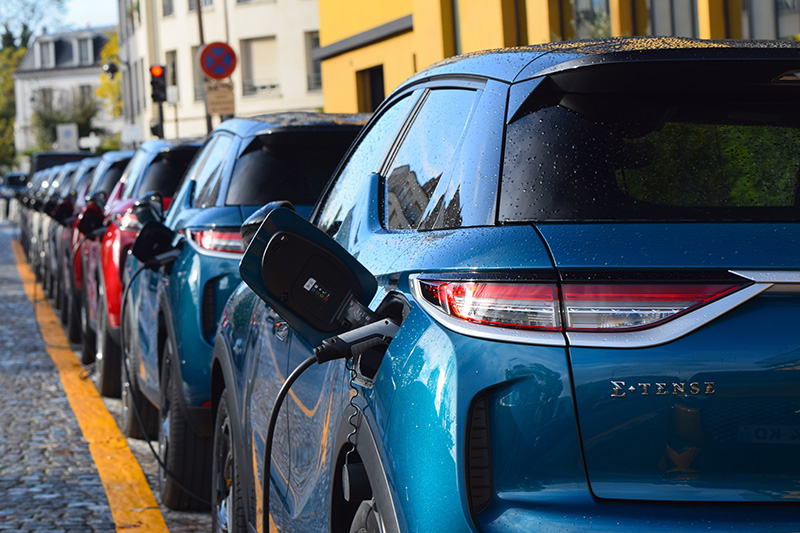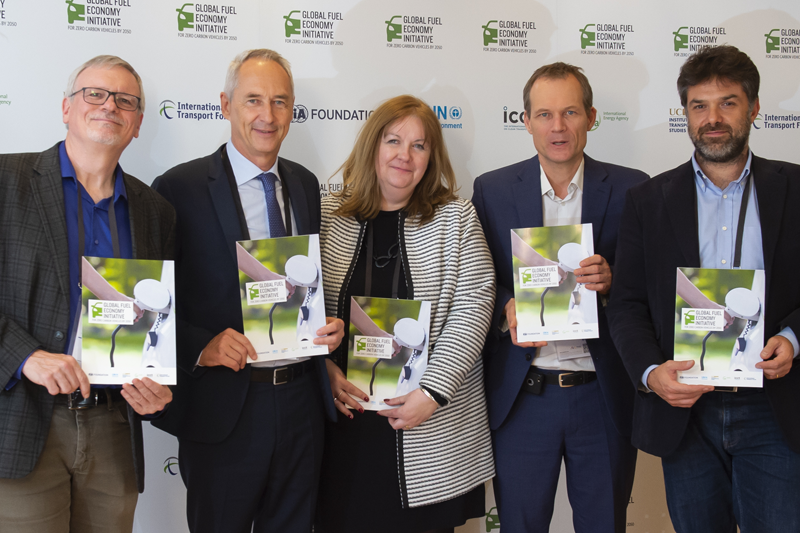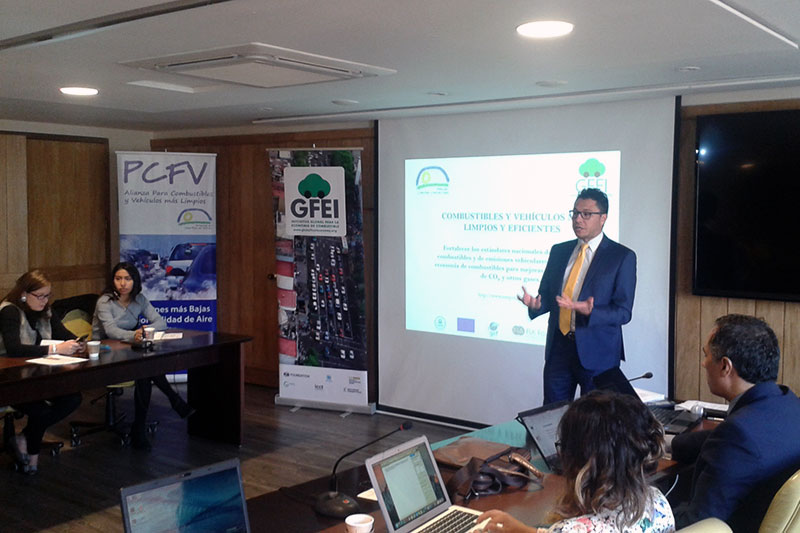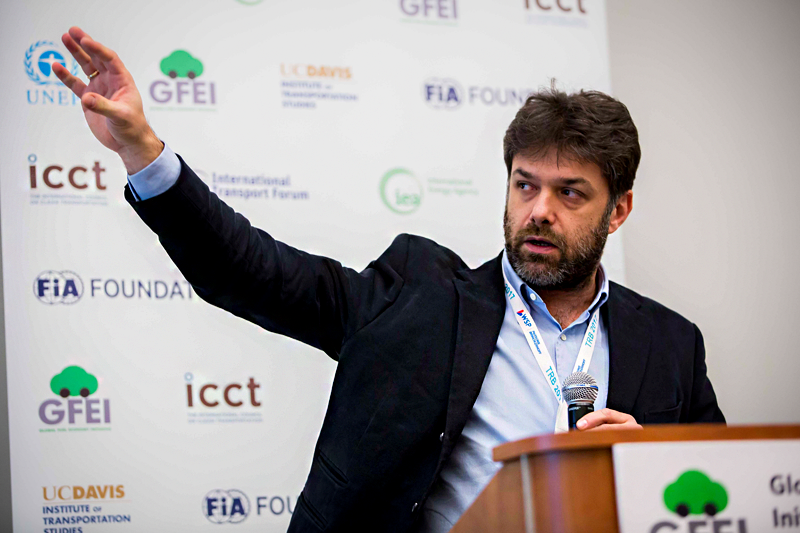‘All of the world is here’ - GFEI Global Training Event Paris
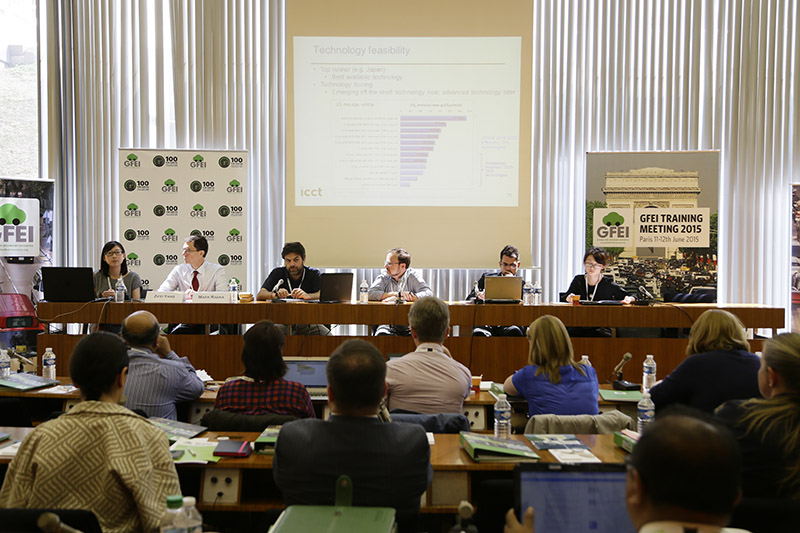
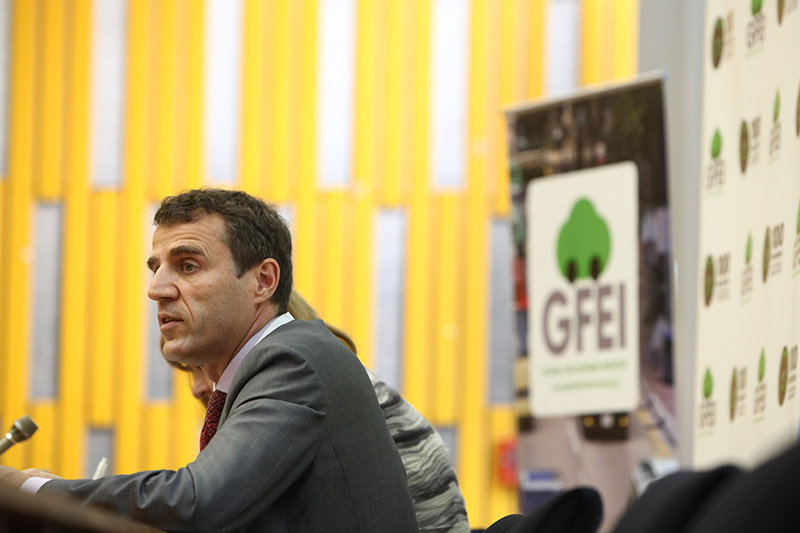
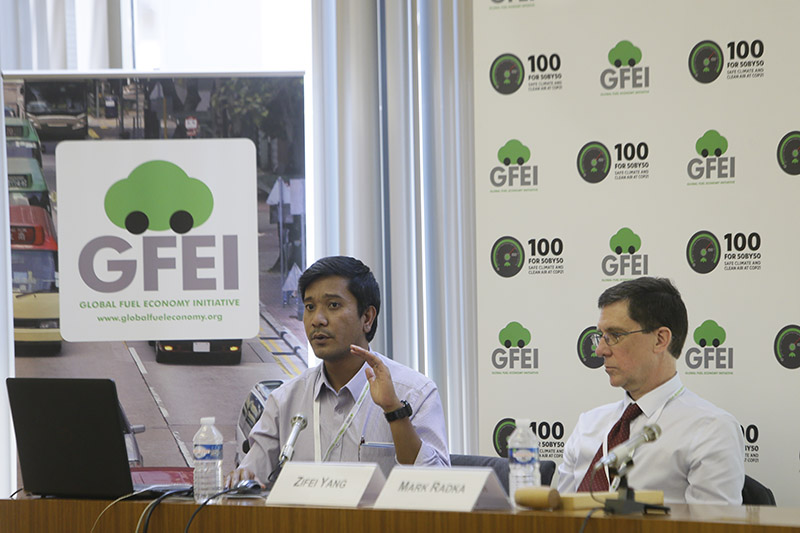
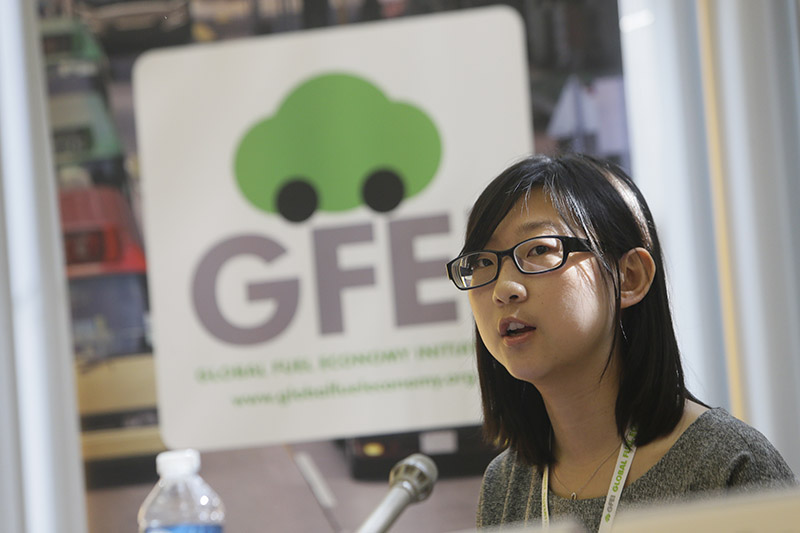
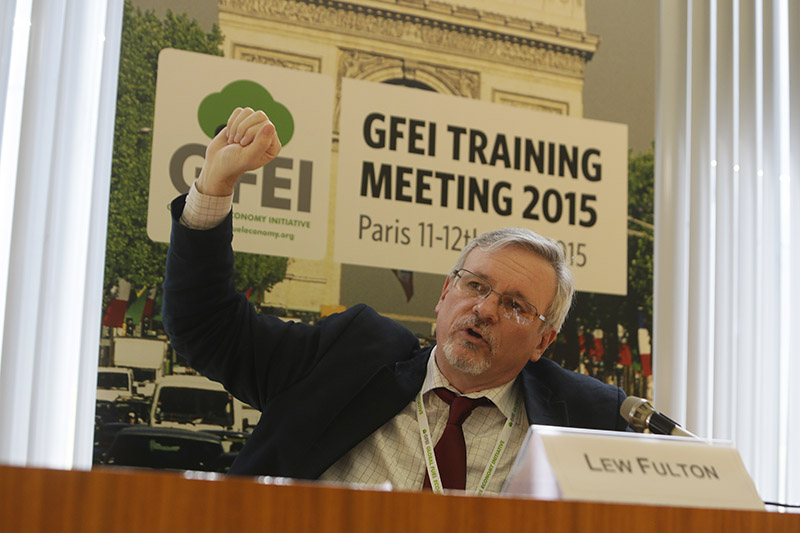
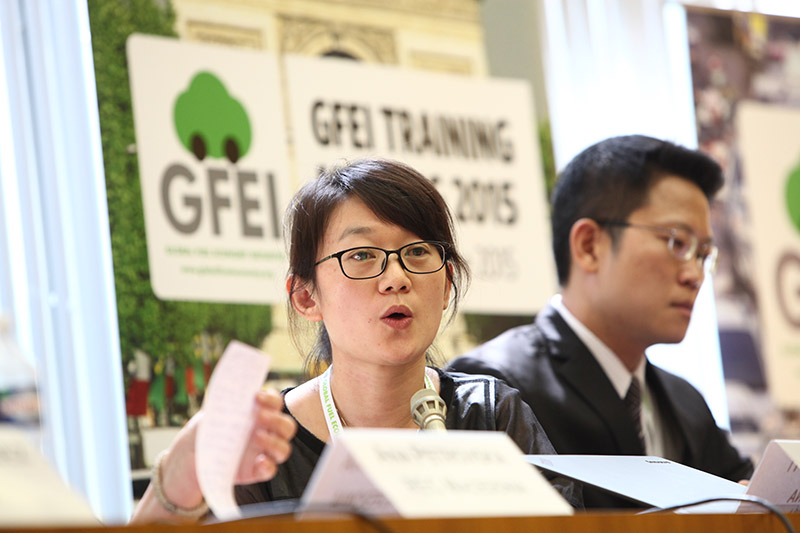
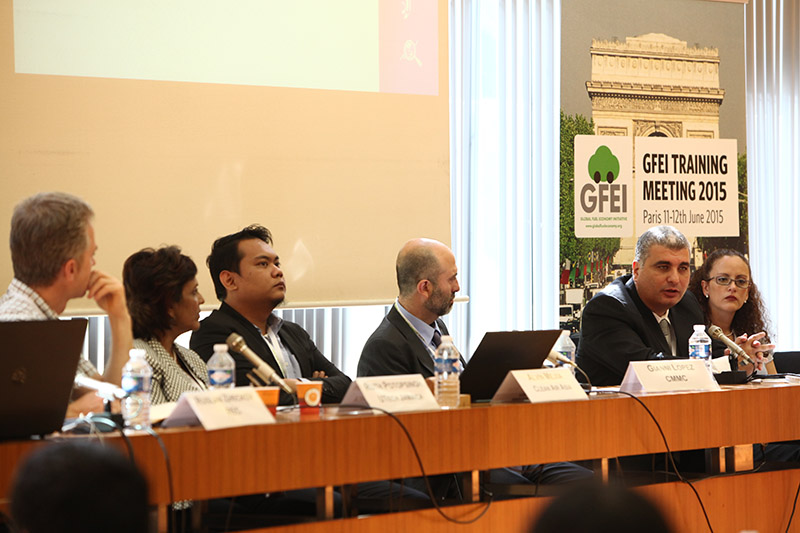
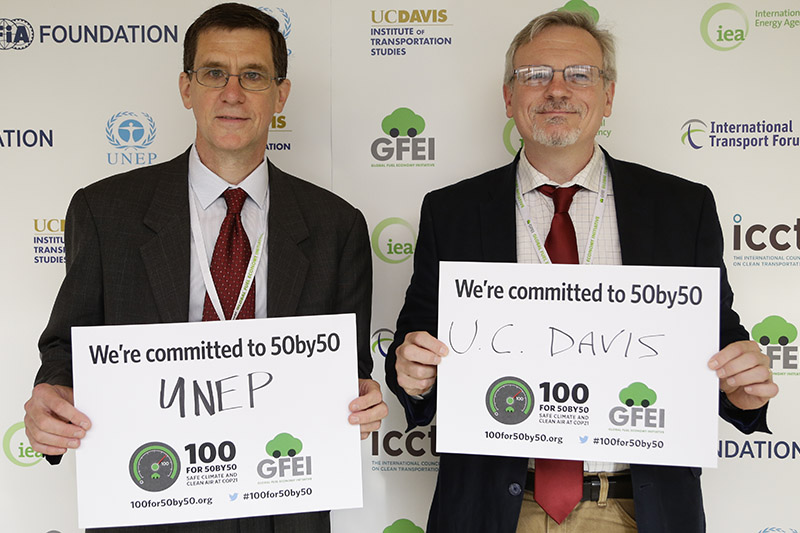
More than 50 participants from around the world joined the Global Fuel Economy Initiative (GFEI) Global Training Event in Paris on 11th – 12th June. The event, held in conjunction with the International Energy Agency (IEA) transport energy efficiency training week, drew together policy makers and technical experts for two days of practical information-sharing and networking.
The first day was introduced by Jean-François Gagné of the IEA, who emphasised IEA’s commitment to promoting improved energy efficiency, with its many economic and social benefits. The meeting also heard from Sheila Watson, Executive Secretary of GFEI, who highlighted the key issues which make fuel economy such a priority; the rapid increase in passenger vehicles in emerging markets, and the impact of vehicle emissions, particularly CO2, in causing climate change.
In a session in which GFEI partners shared their latest research findings, Lew Fulton of UC Davis described how existing efforts to improve fuel economy are having some impact in developed countries, but as average vehicle sizes are getting larger in developing countries, the overall trend is below the level needed to double the average fuel economy (halving average fuel consumption). Zifei Yang of ICCT took participants through the range of standards and regulations that are in place around the world for fuel economy, and the options for using consumer labelling schemes to help purchasers make informed vehicle-buying decisions such as those that have been introduced in Chile, Vietnam, and Singapore.
Bert Fabian of UNEP explained how fuel economy is included in a range of global policy processes, from the UN Sustainable Development Goals to the G20’s energy efficiency policy process. He also conveyed the important role that GFEI is playing in Sustainable Energy for All and climate change negotiations, laying out the interlinkages between fuel economy and clean air policies including reducing the sulphur content of fuel. Finally, Philippe Crist of ITF and Lew Fulton explained the different options for using price incentives to encourage improved vehicle fuel economy, including ‘feebate’ schemes that have been used in France and Mauritius and how Sri Lanka has used tax policies to significantly increase sales of hybrid cars.
The last session of the first day was given over to a practical introduction to the ‘FEPIT’ tool by Alex Koerner of the IEA, which the GFEI partners have developed, and which allows countries to analyse potential outcomes of different policy options based on the characteristics of their vehicle fleet in a range of different scenarios. The sharing of this tool with the countries in the room was indicative of the support which GFEI offers to countries as they seek to promote fuel economy policies. This sort of capacity building work, deploying the latest modelling techniques, and based on the very best practice is central to the offer which GFEI is making as part of its ‘100for50by50’ campaign. The meeting was also addressed by Stephane Crouzat, Diplomatic Counseller to Madame Segolene Royale, Minister for Ecology, Sustainable Development and Energy in the French Government, who highlighted the importance of the Global Fuel Economy Initiative to the COP21 Climate Change negotiations in December. He particularly emphasised the need for practical initiatives such as ‘100 for 50by50’ to be showcased in Paris at COP21 alongside the negotiations. During the GFEI event, participants from countries around the world showed their commitment to this initiative by signing commitment cards, and adding to the momentum which is building in support of GFEI’s work.
Of equal importance to the expert presentations were the discussions and panels in which the 30+ countries in the room were able to exchange their own perspectives and experiences. Country presentations from Thailand, Kenya, China, Peru, Macedonia, and Costa Rica highlighted national experiences, with participants explaining the progress they have made and challenges they have faced. Key issues included ensuring co-ordination between different government Ministries and the vital role of good data, particularly in establishing a baseline. GFEI’s regional partners in Central America, Asia, Africa and the Caribbean shared experiences and lessons learned, with a particular emphasis on how GFEI is supporting countries to demonstrate to their regional neighbours what is possible with fuel economy.
In summing up the meeting, Lew Fulton, a GFEI partner from STEPs at UC Davis said ‘It is amazing to see so many people gathered together to discuss this issue. GFEI really does how have a massive network, all of the world is here’. Commenting after the meeting, Sheila Watson, Executive Secretary of GFEI and Director of Environment & Research at the FIA Foundation, said: ‘We have heard during this seminar about the many ways in which improved fuel economy can help to save resources and our climate. It has been so exciting to meet with countries keen to take the next step on fuel economy, and we in GFEI stand ready to help them’.
View the 100 countries for 50 by 50 leaflet
Presentations
Jean-François Gagné, IEA - Introduction
Lew Fulton, UC Davis - State of the world fuel economy
Sheila Watson, FIA Foundation - The Global Fuel Economy Initiative
Zifei Yang, ICCT - Fuel economy regulations, labelling and other non-fiscal measures
Bert Fabian, UNEP - The wider context of fuel economy policy
Alex Koerner, IEA - Assessing impacts of fuel economy measures (FEPIT)
Lew Fulton, UC Davis - Fiscal fuel economy measures
Elisa Dumitrescu, UNEP and Sheila Watson, FIA Foundation - Overview of the Global Environment Facility (GEF)
GFEI National Panel
GFEI Regional Panel
